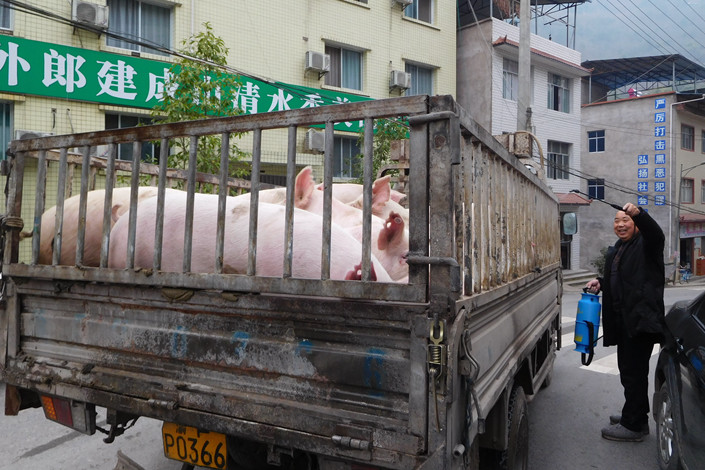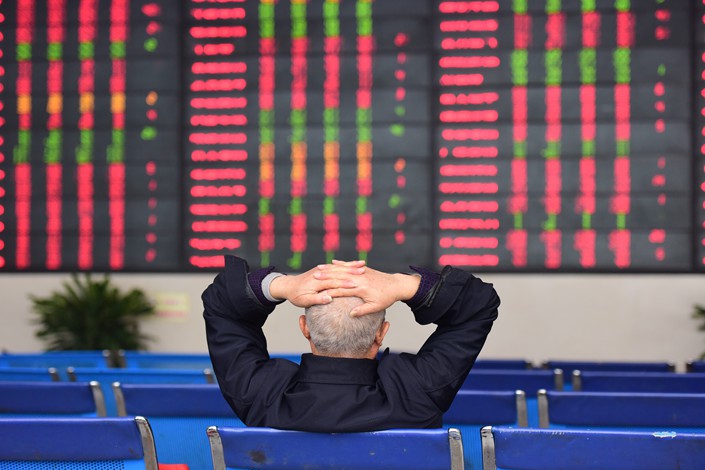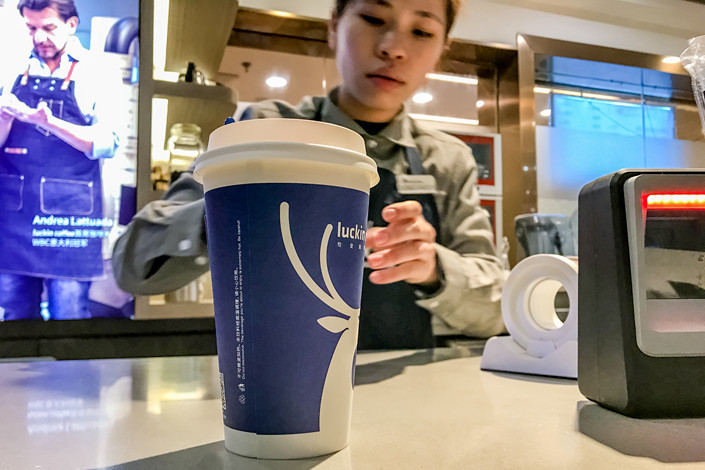CX Daily: China's Pigs Are Back On the Move

China resumes transport of pigs as African swine fever eases
China has lifted a ban on the transport of pigs and pork in and out of 23 provinces after African swine fever outbreaks eased, a senior agricultural ministry official said Tuesday.
The resumed production and transportation of live pigs in the regions are “picking up,” said Wei Baigang, head of the Department of Development Planning of the Ministry of Agriculture and Rural Affairs.
Wei warned that pork prices may spike in the second half of this year because of tight supply, fueling consumer inflation. Large-scale pig farms affected by the outbreaks are cautious about increasing the number of pigs they raise while small, individual farmers are withdrawing from the sector at a faster pace than before, he said, adding that the YOY fall in the number of both live pigs and fertile sows has exceeded 10% for three straight months.
FINANCE & ECONOMICS
Regulators received applications for 82 funds to invest in the new Nasdaq-style board.
China's Nasdaq /
China approves first 7 funds for new tech board investment
The first batch of seven themed funds designed to invest in stocks to be listed on China's new Nasdaq-style high-tech board were approved Monday, through which individual investors who don't meet regulators' high bar can buy shares.
The seven funds are among a total of 82 fund managers that have submitted applications to invest in the new board listings as of last Friday. They are not limited to invest in tech stocks to be listed on the new board being launched by the Shanghai Securities Exchange.
Social security /
For China’s health insurers, even when you're doing well, you're stirring controversy
While China's insurance industry faces dilemmas in entering the health market, policies have emerged, to both acclaim and controversy. One such product from star online insurer ZhongAn Online P & C Insurance Co. Ltd., known as “the million yuan health insurance,” offers millions of yuan of compensation with premiums of several hundred yuan a year and has inspired its own category.
The catches, of course, are many. The plans target healthy, young consumers. Insurers also try to keep claim rates low by setting high deductibles, covering only inpatient services, setting one-year terms, and imposing complicated requirements on compensation claims, leading to high rates of rejection. And yet, it's proven so popular among young people that copycat products soon emerged. Check out our report.
ETFs / Japan
China and Japan reach agreement to cross-list ETFs
The Shanghai Stock Exchange and the Japan Exchange Group signed an exchange-traded funds (ETF) Connectivity Agreement Monday, taking a step toward easier access to ETF markets in both countries. Fund managers from both sides will be able to set up cross-border funds through China’s existing Qualified Domestic Institutional Investors and Qualified Foreign Institutional Investors mechanisms to invest in ETFs in each other’s markets.
China and Japan are pushing ahead more regulatory cooperation and speeding up market access for each other as the two nations signed a memorandum of understanding in October, said Yi Huiman, chairman of the China Securities Regulatory Commission, in a statement.
Quick hits /
Asian Infrastructure Investment Bank accepts 4 new members
DHL CEO: So little globalization yet, so much potential
BUSINESS & TECH
 |
A barista finishes pouring a cup of brew on Jan. 4 at a Luckin Coffee outlet in Guangzhou, South China’s Guangdong province. Photo: IC |
Starbucks China challenger taps Wall Street to keep growing
Luckin Coffee Inc., which has become China’s second-largest coffee chain just a year and a half after opening its first stores, is aiming to raise as much as $100 million on Nasdaq, the company said in its IPO filing to the U.S. securities regulator on Monday.
The filing comes just a week after Luckin raised $150 million in its latest round of fundraising led by investment firm BlackRock, which Luckin said values the company at $2.9 billion. The company previously said it expects to overtake Starbucks as China’s largest coffee chain by the end of 2019.
Gaming /
Tencent-backed e-sports live streamer files for $500 million U.S. IPO
Live streaming platform DouYu International Holdings Ltd. has filed for an IPO of as much as $500 million in the U.S. as it seeks extra funding for a bid to dominate China’s world-leading e-sports market.
With a name that literally means “fighting fish” in Chinese, DouYu claims it was China’s biggest e-sports platform by average total monthly active users in the fourth quarter of last year, with an average of 153.5 million users signing in each month to compete in or watch video game competitions, according to its prospectus.
BRI /
Poor planning poses threat to Belt and Road port projects, report finds
A recent research report found that many Belt and Road Initiative port projects suffer from a “premature mentality,” in which investors jump in without adequately researching potential returns or debt and could “stimulate regional political conflicts”
Chinese firms have invested in 42 ports in 34 countries since 2013 through the initiative but need to do a better job ensuring their projects make money, or they will risk turning locals against them and trigger social issues, according to the report, published by the Grandview Institution, a government advisory research group.
Sharing economy /
Didi warns ride-hailing ‘unsustainable’ amid continued losses
Didi Chuxing warned that losses threaten to make its operations “unsustainable,” as the Chinese ride-hailing giant tried to quash rumors that it pockets as much as 25% of each fare.
From September to December, Didi’s average commission charged per ride was around 19% of the amount each passenger paid, the company said Monday, though acknowledging that a portion of its commissions reached 25%. The average amount was 2 percentage points lower than Didi’s average expenditure for each ride, according to Didi, which presents “loss pressure.”
Big debts /
HNA unit's lenders seize assets after payment deadline missed
Lenders to HNA Group Co. Ltd.’s CWT International Ltd. seized control of assets in Singapore, China and the U.S. after the unit failed to repay amounts due on its credit facility.
Assets that are being taken over include shareholdings of Singapore-based CWT Pte., with investment properties in the U.S. and golf courses in China, according to a statement. Lenders had threatened to take control of the assets unless CWT made payments by 9 a.m. on April 17 tied to a HK$1.4 billion ($179 million) loan taken out in September.
Quick hits /
Oriental DreamWorks returns to roots one year after Chinese buyout
Networking-gear maker takes aim at Huawei with foray into 5G, CEO says
Chinese company found guilty of making Jaguar Land Rover copycat is appealing
Ofo is being booted from Singapore
Didi recruiting drivers on Uber’s turf in Colombia
Streaming video company Bilibili tries to assuage users after massive code leak
Sinopec Group names general manager after year-long vacancy
Editorial: To improve China’s business environment, access to government information must be widened
Thanks for reading. If you haven't already, click here to subscribe.

- 1China Officials Dismiss Tax Hike Rumors After Tech Selloff
- 2Cover Story: How Gutter Oil Became a Prized Fuel for International Airlines
- 3Prominent Chinese Journalist Liu Hu Detained by Police in Chengdu
- 4Maersk Unit Takes Over CK Hutchison Panama Ports After Court Ruling
- 5China Provinces Set Cautious 2026 Growth Targets
- 1Power To The People: Pintec Serves A Booming Consumer Class
- 2Largest hotel group in Europe accepts UnionPay
- 3UnionPay mobile QuickPass debuts in Hong Kong
- 4UnionPay International launches premium catering privilege U Dining Collection
- 5UnionPay International’s U Plan has covered over 1600 stores overseas






